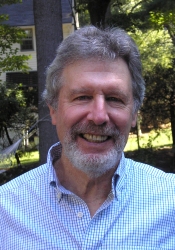 Dr. Gene Heyman
Dr. Gene Heyman
Hosted by: Danielle Fiacco, Melissa Downey, and Alicia Bartley
Scientific experts and the informed public refer to addiction as a “chronic, relapsing disease.” In keeping with this definition, drugs change the brain and addiction is a pattern of persistent, destructive drug use which runs in families. Nevertheless, every national epidemiological survey shows that addiction is the psychiatric disorder that has the highest remission rate, and interviews suggest that the correlates of quitting drugs are the also the correlates of decision making. The empirical findings on quitting are not new or obscure yet until recently have been ignored. Thus, we have three puzzles on hand: How can we explain persistent, self-destructive drug use? What accounts for the high recovery rates? And why have the behavioral findings on drug use in addicts been ignored?
In this talk I will focus on the epidemiological results and make the case that the biological and behavioral findings are perfectly compatible—but not in the way implied by the phrase, “chronic, relapsing disease.”
Gene Heyman is a Lecturer on Psychology at Boston College and Harvard Medical School. His research on addiction includes the development of animal models of alcohol and morphine use and studies on the correlations between cognition, impulsiveness and drug use in clinic and nonclinic populations.
His publications are on topics in choice, psychopharmacology, and addiction and include Addiction: A disorder of choice (2009), a book which integrates research on addiction with research on choice.
Heyman earned a Ph.D. in experimental psychology at Harvard University and has held teaching and research positions at the University of Chicago Medical School, Lederle Laboratories, Harvard University, and Boston College.
His research has been funded by grants from the National Science Foundation, the National Institute on Alcohol and Alcoholism, the National Institute on Drug Abuse, and the Russell Sage Foundation. He has won several Harvard teaching awards, including three Hoopes Prizes.
Leave a Reply